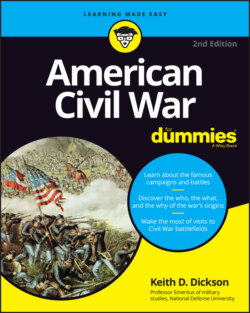Читать книгу American Civil War For Dummies - Keith D. Dickson - Страница 19
Playing a Part in the Controversy: The Constitution
ОглавлениеSince the founding of the United States, the South had maintained a strong hold on political power of the country. This situation often insulated the South and kept the slavery question out of the national dialogue, while also allowing Southern leaders to shape the national agenda. Over time, however, the growing population (nearly half of which lived across the Appalachian Mountains in 1860) gave Northern states proportionately more representatives in the House of Representatives. In addition, between 1846 and 1855, three million immigrants came to America; nearly 90 percent of them settled in states that did not have slaves. By this time, the balance of power had slipped away permanently from the South in the House of Representatives.
As stated in the Constitution, seats in the House of Representatives are apportioned by population. Prior to the Civil War, slaves were considered three-fifths of a person in determining total population of a state. Why three-fifths of a person? In the 1780s, the total white and Black population of the South outnumbered Northern whites, which meant that the South would essentially always have a permanent majority in the House of Representatives. To prevent this, Northerners claimed that Blacks should not be counted. Southerners would not accept this idea because, without the Black population being counted in some way, they would become the permanent minority in the House of Representatives. Eventually, the North and South compromised by deciding to count Blacks as three-fifths of a person for determining representation in the House (Article I, Section 2, of the Constitution — later amended after the war). This early effort at balancing power only highlighted the essential and fatal dichotomy of the institution of slavery. Slaves were considered both property and people in this section of the Constitution, but in reality, they could only be one or the other.
